Discover On the Contrary by IDR
On the Contrary by IDR

On the Contrary by IDR
Author: India Development Review & Maed in India
Subscribed: 7,450Played: 16,481Subscribe
Share
© 2026 India Development Review & Maed in India
Description
On the Contrary by IDR is an award-winning show about listening to people not like us. In every episode, the host chats with guests as they share their diverse experiences, perspectives, and expertise on an issue—water security, gender, climate change, caste, mental health, and more. The goal is to get people to explore their similarities and differences, and find a new, shared understanding. New episode out every Wednesday.
43 Episodes
Reverse
We live in an era of infinite scrolls, curated feeds, and algorithms, with each click designed to keep us hooked just a little longer. But the promise of technology has too often become a race for metrics and growth, moving further away from its original purpose: connecting people. In this episode, we’re speaking to Grace Clapham and Priya Goswami, two people embedded in the worlds of tech and ethical innovation. Grace is the founder of The Worth Club, a movement reimagining leadership, value, and self-worth, and former Director of Community Partnerships at Meta. Priya is a national award–winning filmmaker and co-founder of Mumkin App, an ethical tech initiative focused on feminist technologies. Each of them unpacks how we got here and what it will take to centre wellbeing and community in a tech-first world. Host: Devanshi VaidProduced and edited by: Shreya Adhikari, Devanshi Vaid, and Halima AnsariIDR is an online journal that publishes cutting-edge ideas, lessons, and insights written by and for the people working on some of India’s toughest problems. For more information about IDR, visit www.idronline.com. Also, follow IDR on Linkedin, Instagram, Facebook, and Twitter. Watch the episode here, or read the transcript here. This podcast is a Maed in India production.Donate: https://idronline.org/donate/
Activism can often feel like a race against time; the gravity of injustice too urgent to look away from. But what does this constant sense of urgency mean for the well-being of those at the frontlines of responding to these crises? In this week’s episode of On the Contrary by IDR, we speak to two veteran activists from South Africa. Kumi Naidoo is a human rights and environmental justice activist who has led major global organisations including Amnesty International and Greenpeace. He is joined by Louisa Zondo, the former head of the South African Human Rights Commission and founder of the Riky Rick Foundation for Promotion of Artivism. Listen as Kumi and Louisa discuss the importance of care and well-being when confronting the most pressing issues of our time. Host: Devanshi VaidProduced and edited by: Shreya Adhikari, Devanshi Vaid, and Halima AnsariIDR is an online journal that publishes cutting-edge ideas, lessons, and insights written by and for the people working on some of India’s toughest problems. For more information about IDR, visit www.idronline.com. Also, follow IDR on Linkedin, Instagram, Facebook, and Twitter. Watch the full episode here, or read the transcript here. This podcast is a Maed in India production.Donate: https://idronline.org/donate/
When we talk about philanthropy, we usually focus on the tangible: what’s being funded, where the money goes, and what results it delivers. But behind every outcome is a relationship—between funders and grantees, between organisations and the people they serve. So what would it take to centre well-being, not just as a perk or an afterthought but as a guiding principle of how philanthropy works? Mahendra Pandey of Humanity United and Steven Harris of Fetzer Institute discuss on this week’s episode of On the Contrary by IDR. Host: Devanshi Vaid Produced and edited by: Shreya Adhikari, Devanshi Vaid, and Halima Ansari IDR is an online journal that publishes cutting-edge ideas, lessons, and insights written by and for the people working on some of India’s toughest problems. For more information about IDR, visit www.idronline.com. Also, follow IDR on Linkedin, Instagram, Facebook, and Twitter. Watch the full episode here, or read the transcript here. This podcast is a Maed in India production. Donate: https://idronline.org/donate/
What does well-being mean when systems are built on conflict and violence, and who gets to define what healing looks like? This week’s episode of On the Contrary by IDR brings together two guests who have witnessed conflict up close. Paula Moreno, founder of Manos Visibles (Visible Hands), works on racial and territorial justice in Colombia and is the youngest person to hold a cabinet position in Colombia’s government. Dr Jean Bosco Niyonzima, raised during the ethnic conflict in Rwanda, is a doctor, a social entrepreneur, and an expert in trauma healing and community-based mental health. Listen as they discuss the complexities of building collective healing, the meaning of well-being in conflict-affected systems, and the lessons their experiences offer for communities around the world. Host: Devanshi VaidProduced and edited by: Shreya Adhikari, Devanshi Vaid, and Halima Ansari IDR is an online journal that publishes cutting-edge ideas, lessons, and insights written by and for the people working on some of India’s toughest problems. For more information about IDR, visit www.idronline.com. Also, follow IDR on Linkedin, Instagram, Facebook, and Twitter. Watch the full episode here, or read the transcript here. This podcast is a Maed in India production.Donate: https://idronline.org/donate/
How does the media function in times of crisis? How do audiences respond to multiple stories of crisis one after another? Is it possible for journalists to cover conflict without causing harm to themselves or others? And what is the emotional cost of journalism in the 21st century? In this episode, Mar Cabra, a Pulitzer Prize–winning investigative journalist and the co-founder of The Self-Investigation, and Nat Kendall-Taylor, CEO of the FrameWorks Institute, a communications think tank, discuss how the stories we tell can balance truth and care. Host: Devanshi VaidProduced and edited by: Shreya Adhikari, Devanshi Vaid, and Halima Ansari IDR is an online journal that publishes cutting-edge ideas, lessons, and insights written by and for the people working on some of India’s toughest problems. For more information about IDR, visit www.idronline.com. Also, follow IDR on Linkedin, Instagram, Facebook, and Twitter. Watch the full episode here, or read the transcript here. This podcast is a Maed in India production.Donate: https://idronline.org/donate/
In this episode, journalist Namita Bhandare, researcher Sharon Buteau, and author and economist Shrayana Bhattacharya, delve into the data on female labour force participation, revealing the truth about Indian women’s engagement in paid work. Host: Saloni Meghani Produced and edited by: Sneha Philip, Smarinita Shetty, Shreya Adhikari, and Halima Ansari IDR is an online journal that publishes cutting-edge ideas, lessons and insights, written by, and for the people working on some of India’s toughest problems. For more information, visit www.idronline.org, or follow IDR on Facebook, Linkedin, Twitter and Instagram. This podcast is a Maed in India production. Donate: https://idronline.org/donate/
In this episode, Gayathri Vasudevan (Chief Impact Officer, Sambhav Foundation and Chairperson, LabourNet Services India), and feminist and queer activist Manak Matiyani discuss how gender norms and masculinities shape women's access to the workforce. Host: Smarinita Shetty Produced and edited by: Rachita Vora, Smarinita Shetty, Shreya Adhikari, and Halima Ansari IDR is an online journal that publishes cutting-edge ideas, lessons and insights, written by, and for the people working on some of India’s toughest problems. For more information, visit www.idronline.org, or follow IDR on Facebook, Linkedin, Twitter and Instagram. This podcast is a Maed in India production. Donate: https://idronline.org/donate/
In this special episode, we speak with climate activist Disha Ravi, environmental lawyer Mridula Vijairaghavan, and nonprofit leader Stalin Dayanand. Together, they unpack the dynamics of environmental protests—what works, what doesn't, and whether these movements hold the key to shaping climate action in policy rooms. Host: Shreya Adhikari Produced and edited by: Rachita Vora, Smarinita Shetty, Shreya Adhikari, Derrek Xavier, and Halima Ansari IDR is an online journal that publishes cutting-edge ideas, lessons and insights, written by, and for the people working on some of India’s toughest problems. For more information, visit www.idronline.org, or follow IDR on Facebook, Linkedin, Twitter and Instagram. This podcast is a Maed in India production. Donate: https://idronline.org/donate/
Water conservation is the need of the hour, and it requires both community-led initiatives and increased corporate engagement. In this episode, Shraman Jha, CEO of Hindustan Unilever Foundation, and Padma Shri awardee Uma Shankar Pandey, a jal yoddha or water warrior from Bundelkhand, Uttar Pradesh, discuss how communities and businesses can step up their water conservation efforts. Host: Saloni Meghani Produced and edited by: Saloni Meghani, Smarinita Shetty, Sneha Philip, and Shreya Adhikari IDR is an online journal that publishes cutting-edge ideas, lessons and insights, written by, and for the people working on some of India’s toughest problems. For more information, visit www.idronline.org, or follow IDR on Facebook, Linkedin, Twitter and Instagram. This podcast is a Maed in India production.Donate: https://idronline.org/donate/
In this special episode, we travel across India's farming landscape with three experts—Narendranath Damodaran (Pradan), Naseem Shaikh (SSP), and Swapna Sarangi (FES) as they help us envision a more sustainable future for agriculture and farmers in the country. Host: Sneha Philip Produced and edited by: Saloni Meghani, Smarinita Shetty, Sneha Philip, and Shreya Adhikari IDR is an online journal that publishes cutting-edge ideas, lessons and insights, written by, and for the people working on some of India’s toughest problems. For more information, visit www.idronline.org, or follow IDR on Facebook, Linkedin, Twitter and Instagram. This podcast is a Maed in India production. Donate: https://idronline.org/donate/
Women play a vital role in India's agrarian economy, but are often excluded in policy considerations. In this episode, our two guests Ireena Vittal and Kavitha Kuruganti help us understand the contribution of women in agriculture, while also getting us to imagine what a future without women farmers would look like. Host: Smarinita Shetty Produced and edited by: Rachita Vora, Smarinita Shetty, Sneha Philip, and Shreya Adhikari IDR is an online journal that publishes cutting-edge ideas, lessons and insights, written by, and for the people working on some of India’s toughest problems. For more information, visit www.idronline.org, or follow IDR on Facebook, Linkedin, Twitter and Instagram. This podcast is a Maed in India production. Donate: https://idronline.org/donate/
"Two leaders belonging to different generations, PANI's Bharat Bhushan and Deo Datt Singh, unpack the evolution of farming in the country over the last 7 decades, and discuss what needs to change in light of the current threats of climate change and water scarcity." Host: Sneha Philip Produced and edited by: Rachita Vora, Smarinita Shetty, Sneha Philip, and Shreya Adhikari IDR is an online journal that publishes cutting-edge ideas, lessons and insights, written by, and for the people working on some of India’s toughest problems. For more information, visit www.idronline.org, or follow IDR on Facebook, Linkedin, Twitter and Instagram. This podcast is a Maed in India production.Donate: https://idronline.org/donate/
Groundwater is key to achieving water security for the nation. However, very little is understood of its importance and the need to manage it. In this episode, Mala Subramaniam, CEO at Arghyam, and Himanshu Kulkarni, executive director at ACWADAM, discuss the state of India's groundwater today, what’s happening on the policy side and what’s shifting in practice, in order to address this alarming decline of the resource. Host: Smarinita Shetty Produced and edited by: Rachita Vora, Smarinita Shetty, Sneha Philip, and Shreya Adhikari IDR is an online journal that publishes cutting-edge ideas, lessons and insights, written by, and for the people working on some of India’s toughest problems. For more information, visit www.idronline.org, or follow IDR on Facebook, Linkedin, Twitter and Instagram. This podcast is a Maed in India production. Donate: https://idronline.org/donate/
India’s water challenges are complex, but there are innovative solutions that are being championed by a range of diverse stakeholders—governments, civil society, the private sector, and others. How can they come together to ensure water security for India? In this episode, Ajith Radhakrishnan (World Bank) and Jagdeesh Rao Puppala (FES) deliberate on what it will take to solve India’s water crisis. Host: Sneha Philip Produced and edited by: Rachita Vora, Smarinita Shetty, Sneha Philip, and Shreya Adhikari IDR is an online journal that publishes cutting-edge ideas, lessons and insights, written by, and for the people working on some of India’s toughest problems. For more information, visit www.idronline.org, or follow IDR on Facebook, Linkedin, Twitter and Instagram. This podcast is a Maed in India production. Donate: https://idronline.org/donate/
On the Contrary by IDR is back with a new season and this time, we’re diving deep into India’s water crisis. Hear from policymakers, practitioners, and business heads as they discuss and debate what it will take to achieve water security in India. For more information, visit: www.idronline.orgDonate: https://idronline.org/donate/
In this episode, Archana Soreng, a young climate activist belonging to the Kharia tribe in Odisha, speaks with Bijal Brahmbhatt, director at the nonprofit Mahila Housing Trust. They discuss how the climate crisis is exacerbating pre-existing inequalities across rural and urban India, especially for women and indigenous communities. Exploring the future of climate action, they also talk about why it’s crucial for policymakers to make space for voices and solutions emerging from the grassroots. Host: Smarinita Shetty;Produced and edited by: Rachita Vora, Shreya Adhikari, and Smarinita Shetty.IDR is an online journal that publishes cutting-edge ideas, lessons and insights, written by, and for the people working on some of India’s toughest problems. For more information, visit www.idronline.org , or follow IDR on Facebook, Linkedin, Twitter and Instagram. This podcast is a Maed in India production.Donate: https://idronline.org/donate/
As the climate emergency worsens, can we continue to work the way we do? And if the nature of jobs needs to change, how can we ensure that the most vulnerable communities don’t bear the brunt? Harish Hande, the co-founder of SELCO, argues that moving away from centralised businesses and localising jobs is the way to go. However, Sabina Dewan, the founder and executive director of the JustJobs Network, calls for stronger policy and regulatory frameworks to ensure businesses become sustainable. Host: Smarinita Shetty; Produced and edited by: Rachita Vora, Shreya Adhikari, and Smarinita Shetty. IDR is an online journal that publishes cutting-edge ideas, lessons and insights, written by, and for the people working on some of India’s toughest problems. For more information, visit www.idronline.org , or follow IDR on Facebook, Linkedin, Twitter and Instagram. This podcast is a Maed in India production.Donate: https://idronline.org/donate/
Technology is emerging as a crucial lever for climate action. However, there is also an urgent need to discuss its consequences. Is adopting tech truly the only low carbon answer or just a more profitable one? And who gets to control it? The big tech companies or the communities facing the devastating consequences of climate change on the ground? Jim Fruchterman, Founder and CEO of Tech Matters, and Trisha Ray, Deputy Director, Centre for Security, Strategy and Technology at Observer Research Foundation, explore the growing and sometimes unforeseeable impacts of tech on climate change. Host: Smarinita Shetty; Produced and edited by: Rachita Vora, Shreya Adhikari, and Smarinita Shetty. IDR is an online journal that publishes cutting-edge ideas, lessons and insights, written by, and for the people working on some of India’s toughest problems. For more information, visit www.idronline.org, or follow IDR on Facebook, Linkedin, Twitter and Instagram. This podcast is a Maed in India production.Donate: https://idronline.org/donate/
Much needs to change in India when it comes to agriculture, especially given the climate crisis and its impact on our food systems. On this episode, Crispino Lobo, co-founder of the Watershed Organisation Trust, and Mark Kahn, co-founder of the agritech-focused venture capital firm, Omnivore, discuss what farmers need most today to help them develop climate resilience. Host: Rachita Vora Produced and edited by: Rachita Vora, Shreya Adhikari, and Smarinita Shetty IDR is an online journal that publishes cutting-edge ideas, lessons and insights, written by, and for the people working on some of India’s toughest problems. For more information, visit www.idronline.org, or follow IDR on Facebook, Linkedin, Twitter and Instagram. This podcast is a Maed in India production. Donate: https://idronline.org/donate/
With the increasing focus on climate action in India, all eyes are on the funding landscape to back it up. But where do corporate, individual, and private philanthropy stand when it comes to funding climate solutions? What are their constraints, and given the quantum of funds required, is a collaboration between them a potential solution? Gayatri Divecha, Head of Corporate Social Responsibility at Godrej Industries, and Shloka Nath, Executive Director, at India Climate Collaborative, weigh in. Host: Rachita Vora Produced and edited by: Rachita Vora, Shreya Adhikari, and Smarinita Shetty IDR is an online journal that publishes cutting-edge ideas, lessons and insights, written by, and for the people working on some of India’s toughest problems. For more information, visit www.idronline.org, or follow IDR on Facebook, Linkedin, Twitter and Instagram. This podcast is a Maed in India production. Donate: https://idronline.org/donate/


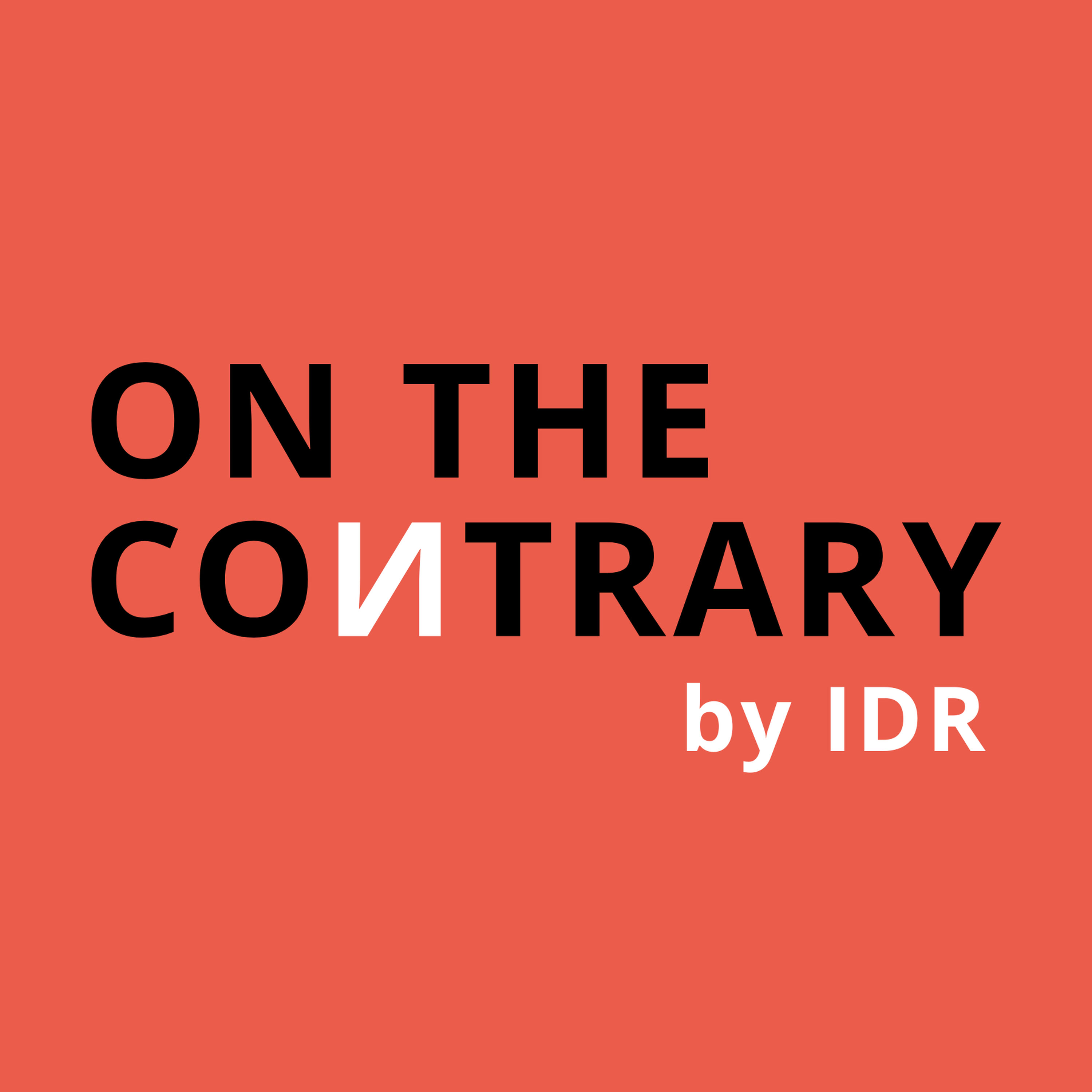
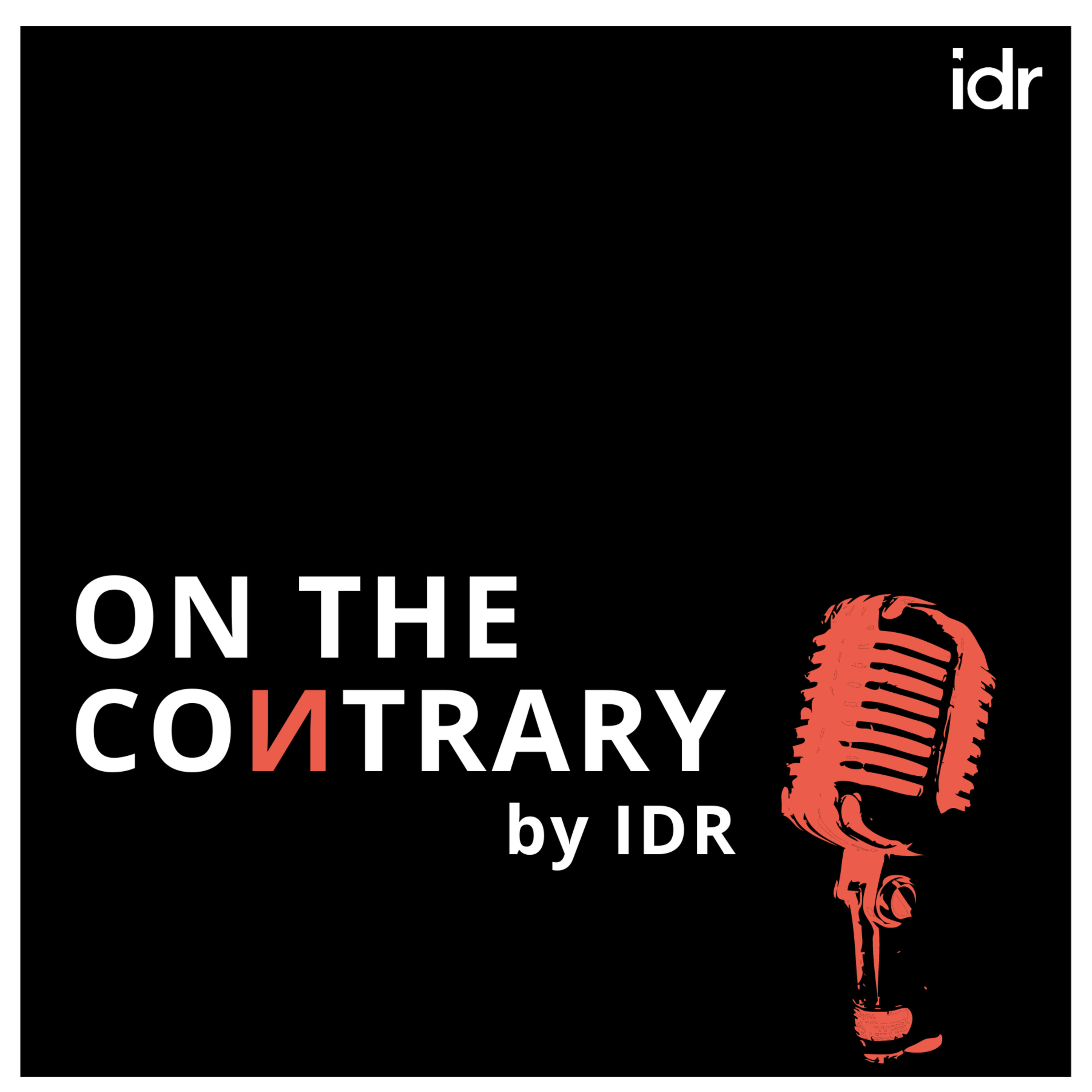
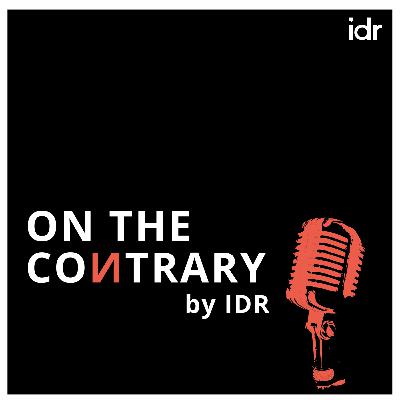
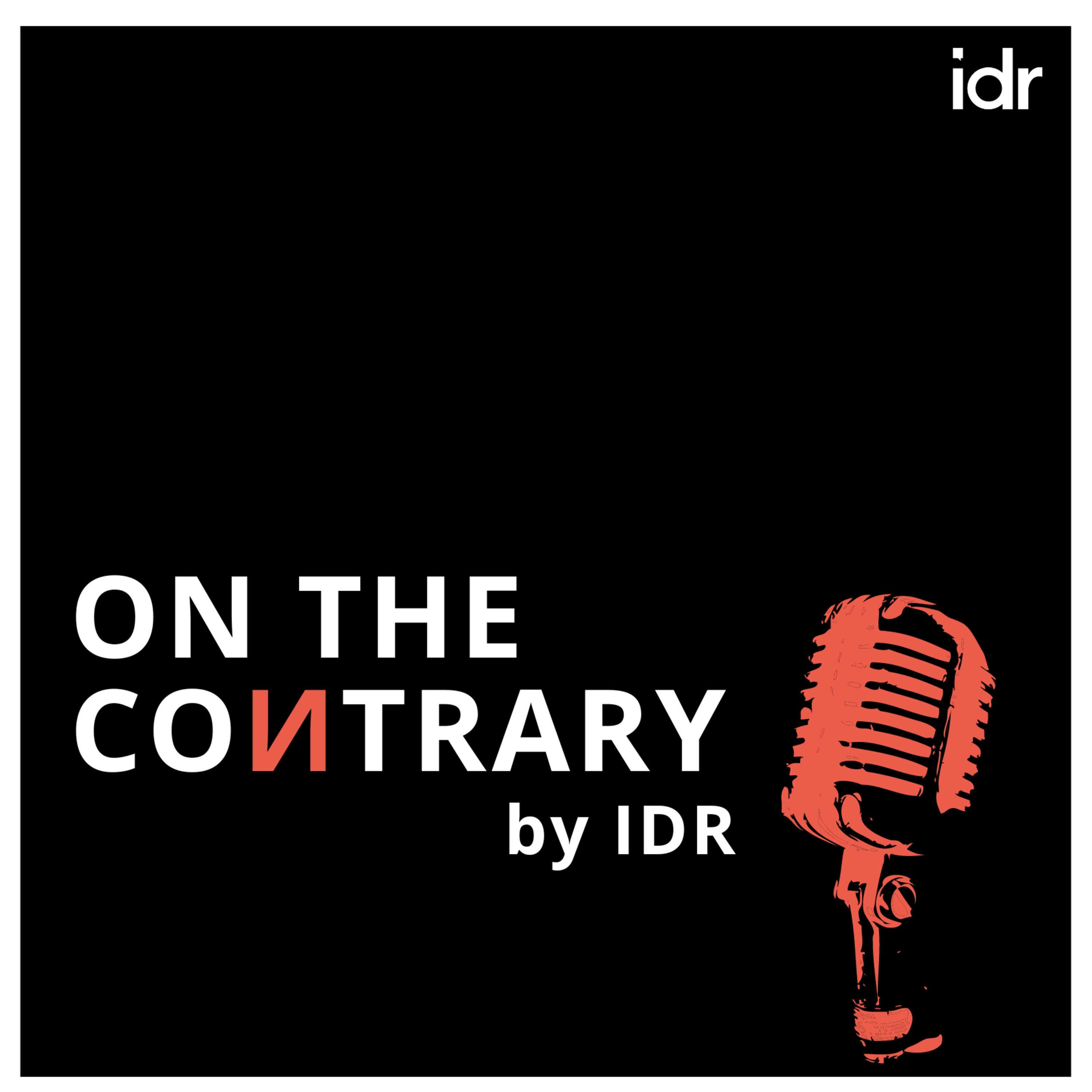
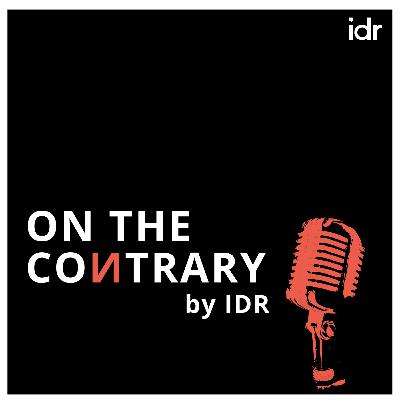



Choosing Examstrack for your CT-AI preparation represents a strategic investment in your professional development and testing career trajectory in the age of artificial intelligence. The platform offers reliable, current, and well-structured resources that help you master the exam content efficiently and effectively. By utilizing these comprehensive preparation materials, you're not merely studying to pass an examination—you're building the specialized expertise required to excel as an ISTQB Certified AI Testing professional and contribute to the development of reliable, high-quality AI systems. Trust Examstrack to guide you toward achieving your certification goals and advancing your career in the rapidly evolving field of artificial intelligence testing and quality assurance. https://www.examstrack.com/istqb-dumps/ct-ai-exam
very eye opening. as a parent of a special needs child who is about to start school, i can totally understand these issues. the pressure is immense. super podcast
Dr. Bang the bureaucratic structure in India doesn't recognize the diversity.
Oxfam report about India is highly Misleading.. they fail to understand emerging markets like India... https://medium.com/@hindolsengupta/why-oxfam-is-misleading-at-least-about-india-37616ded8893